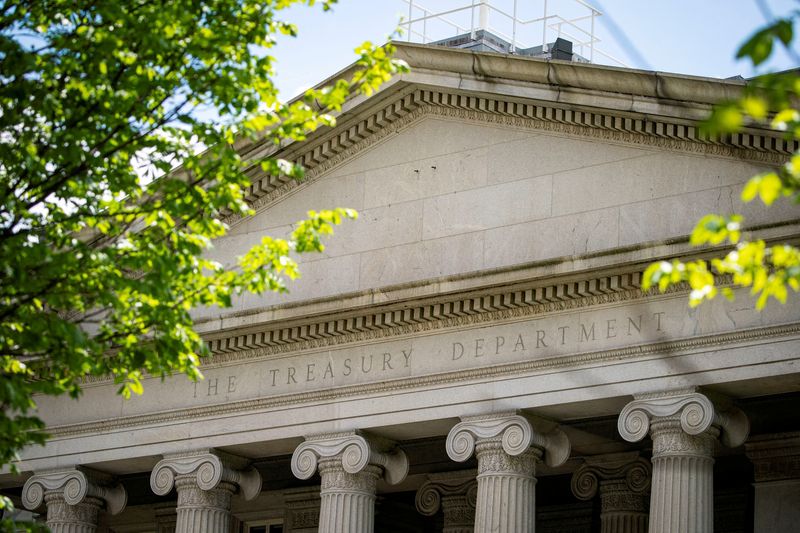By David Shepardson
WASHINGTON (Reuters) - The U.S. Treasury Department has set a minimum of $492 million in total it is seeking in next week's auctions to sell warrants to purchase shares in U.S. airlines the government received in exchange for COVID-19 assistance.
Congress approved $54 billion in COVID-19 air carrier bailouts in 2020 and 2021. Airlines were required to repay $14 billion of that total and Treasury received warrants to purchase stock at the share price of the time of the awards.
American Airlines (NASDAQ:AAL) received $12.6 billion in government assistance, followed by Delta Air Lines (NYSE:DAL) $11.9 billion, United Airlines $10.9 billion, and Southwest Airlines (NYSE:LUV) at $7.2 billion.
Seven other airlines received smaller awards, including $2.2 billion for Alaska Airlines.
Treasury plans to auction its warrants in the 11 airlines starting Monday. The air carriers declined comment or did not immediately answer if they plan to take part in the auction.
Treasury set reserve prices of $221 million for its Delta warrants, $159 million for United, $59 million for American Airlines, $30 million for SkyWest (NASDAQ:SKYW), $17 million for Alaska Air (NYSE:ALK), $2.9 million for Hawaiian Airlines, $1.9 million for Frontier Group and $1.7 million for Southwest.
The Treasury is seeking at least $50,000 per airline for its warrants in Allegiant, Spirit Airlines (NYSE:SAVE), and JetBlue. Those warrants and others are priced below the current trading prices of the carriers' stocks.
The warrants expire between April 2025 and June 2026.

The U.S. government also extended $25 billion in low-cost loans to airlines. Treasury said "the proceeds of these sales will provide additional returns to the American taxpayer from the financial assistance and liquidity that Treasury provided to these airlines during the pandemic."
The pandemic prompted a historic collapse in air travel demand. U.S. air passenger travel fell by 60% in 2020 to its lowest since 1984, down more than 550 million passengers, as airlines slashed costs and struggled to survive.